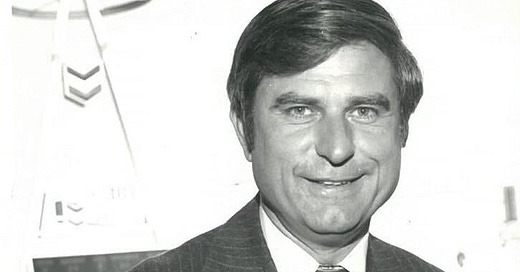The Bird Tapes Interview: Harry Dalton
He took a job with the Orioles before they played a game. He was integral to their rise. In a rare interview from years ago, he vividly depicts his era and a version of baseball that no longer exists.
Harry Dalton was 71 years old and handsomely retired when I interviewed him for my book on Orioles history a quarter-century ago. His long run as a major league GM with the Orioles, California Angels and Milwaukee Brewers had ended a decade earlier, and those years of hard work and success had paid off. He lived with his wife in a beautiful, modern home in the mountains outside Phoenix. One of their grown children dropped by during the interview. It was a setting anyone would envy.
But late in our interview, he became nostalgic for his early years in baseball, long before his current trappings of success were imaginable.
“If I could go back and take any of the jobs I’ve had, I’d be the farm director for the Orioles,” he said.
This was a baseball man who’d built teams that won World Series, pennants and divisions, a roster-builder extraordinaire who’d made big trades involving Hall of Famers. He’d worked for years at the game’s pinnacle, but what he’d loved most were his nascent days, when he knocked on a prospect’s front door somewhere in America, sat at his kitchen table with his parents and tried to convince them to take Baltimore’s contract offer instead of one from the Yankees, Red Sox, Reds of Cardinals.
“What great days,” Dalton said about the era before the draft and free agency changed the nature of player acquisition and roster building. (The draft was instituted in 1965. Free agency was granted in the 1970s.)
Years later, I’m so glad I recorded my interview with Dalton, who died in 2005. He was in the game long enough to encounter the modern machinations of free agency and crazy contracts, but as a young Amherst graduate just starting out in the early 1950s, he experienced a version of the sport that vanished long ago.
I mean, Joe DiMaggio was still playing for the Yankees just two years before Dalton took a job with the Orioles in December 1953 — yes, before they’d played a game.
A native of Springfield, Massachusetts, he’d come out of the Air Force and tried writing sports for a newspaper. He was driving a cab in Baltimore, where his parents had moved, to help make ends meet. The St. Louis Browns happened to move to town and become the Orioles, giving him the idea of a job in baseball. He initially tried PR but wound up as the assistant farm director, and by the end of the decade, he was sitting in living rooms and using his wits to try to sign prospects.
He covers a ton of Orioles history in our interview, available below to paid Bird Tapes subscribers. (Clink this link to upgrade to a paid subscription.) He explains how he brought a young Earl Weaver along, traded for Frank Robinson, helped Mike Cuellar become a success, signed his favorite Oriole on a dance floor one night. (Sorry, no spoilers.) But he clearly savors the years when he outfoxed other teams to sign top prospects such as Dean Chance and Jim Palmer.
It’s no wonder he grew nostalgic as we spoke that day in the Arizona mountains. He not only depicts Orioles history, but also, truly, the game that once was.
Keep reading with a 7-day free trial
Subscribe to The Bird Tapes to keep reading this post and get 7 days of free access to the full post archives.





